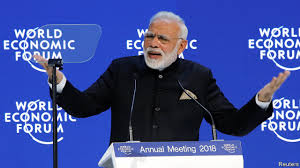How the big emerging economies climbed the World Bank business ranking

THE CENTRAL SPORTHOTEL in Davos usually plays host to skiers intent on picturesque descents. But during the World Economic Forum in January it celebrated an eye-catching ascent. One side wall was bedecked with a poster of Narendra Modi, India’s prime minister. Its caption boasted that India had climbed 30 places in the previous year’s World Bank ranking of the easiest places to do business.
China’s prime minister, Li Keqiang, lacks Mr Modi’s flair for self-promotion. But at the next gathering in Davos, he will have an even prouder boast. In the latest World Bank report, published on October 31st, China rose 32 places.
How did they do it? And how credible is their progress? In an ideal world, countries would rise in the World Bank ranking as a welcome by-product of reforms undertaken for their own sake. But India and China are among the 60-plus countries that have government units dedicated to moving upwards, almost as if it were an end in itself.
China’s comprises about 40 people; India’s perhaps 200, plus others working on state-level scorecards. Many teams visit the bank to learn precisely how the scores are calculated. India’s now thinks it could mark its own exam. It announced, long before the bank’s official assessment, the score it felt it “should” receive.
The rankings also loom large in Russia. Vladimir Putin, its president, set an ambitious target to rise by 100 places in six years. That proved impossible. Russia has instead risen by 89 places in seven years. This steady progress says a lot about the ingenuity of its reform unit. It says less about Russia’s actual friendliness to business. Compare, for example, its positions in the Doing Business report (31st) and the corruption index produced by Transparency International, an NGO (135th).
Russia’s manoeuvres may, however, have motivated more genuine reforms elsewhere. Mr Putin’s target possibly helped inspire Mr Modi in 2014 to set one of his own: to move India into the top 50 countries by 2019. India’s rapid progress on this front seems in turn to have galvanised China’s efforts.
Much of the red tape that hurts a country’s rank is wrapped and tied not by the central government, but by local officials. They may have little interest in national reform efforts, since they are unlikely to adorn any posters in Davos. China therefore took care to enlist the help of the deputy mayors of Beijing and Shanghai (the two cities assessed by the World Bank). They led China’s campaign, drawing on the expertise of the central reform unit.
China’s ascent was partly eased by the fact that its rubber-stamp legislature could not hold things up. For a democracy, it is harder to elbow up the rankings. India, for example, took over a decade to pass the unified goods-and-services tax that helped boost its standing this year. It required a constitutional amendment, numerous parliamentary votes and delicate negotiations with state legislatures.
Brazil’s reform efforts have often faced similar obstacles. It nonetheless improved its ranking by 16 places this year, presumably because its unpopular outgoing president, Michel Temer, knew he had nothing to lose. In a fierce democracy, the lamest ducks may also be the bravest.
This article appeared in the Finance and economics section of the print edition under the headline “Doing BRICness”




